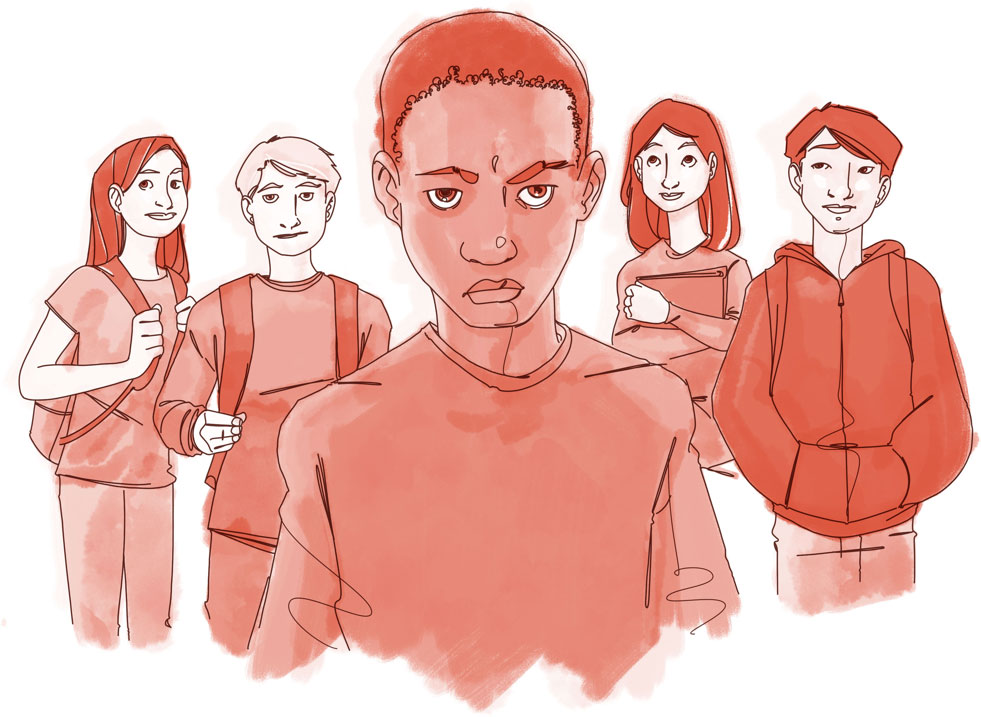What Other Kids Have to Say About Caregiving
Over the next section we are going to address caregiving and different experiences by using the words of the people who participated in a study on youths and ALS.
They are all caregivers.
They told us what it is like to provide care and asked some really important questions about caregiving.
Here are a few of their questions and comments. Some might be saying exactly what you are thinking!
“It is really hard to talk to other kids, they just don’t get it”
Just like talking about ALS in general, it can be difficult to talk about something like bathing or feeding your parent with other kids. Caregiving is one of those topics that people don’t share—even adults!
What can you do? Even though it may seem embarrassing to do this, talk to your parents about youth programming through The ALS Association. If there is one place where other kids will “get it”—it is there. You are not alone in being a caregiver. While most of your friends at school may not get it—the kids who participate in youth programming and services from The ALS Association will.
“Sometimes I just want to be heard”
We are human, and we like to be told that what we do is good, or helpful. This includes being a caregiver. Kids tell us all the time how people ask about their mom or dad, their grandparent or loved one, but rarely about them.
It is nice to be asked, and you should not feel bad about wanting to be acknowledged. One teenager said, “I just feel kind of like always helping other people, and no one’s there to help me, I guess. That would be the best thing is just kind of have someone go, hey, good job, whatever. You know, sometimes.” This is a very normal feeling.
But how do you talk about being a caregiver?
- Be honest—It’s OK to say how you feel about caregiving. Chances are your family member is a bit uncomfortable as well.
- Without anger—This is important. You may be really upset, sad, or angry about it, but when you use anger it shuts everyone down. Think about how you feel, maybe write it down, then talk about it with a trusted adult or friend. They may be able to help you find a way to discuss caregiving without getting upset
- Humor—Sometimes you just have to laugh—even when it seems like what you are laughing at is not that funny. Laughter can make a situation easier and can make people less worried or upset.

“What is it like for my family member to need care from me?”
This is a great question, and one that is really important to ask. Some parents say they feel SO PROUD that their child helps take care of them. They see you grow and mature—and take on responsibility, which makes them happy.
But some family members feel badly. They don’t want to make you feel stressed or worried, but sometimes they just need help. You may consider talking to someone like a teacher or social worker at school. Let them know you want to talk to your family but don’t know how.
The bottom line is: Talk about it! We know it can be tough. Everyone involved is worried about others’ feelings, but we also know that talking can help you feel more at ease with the situation. And it will probably help your parents feel better too. Here is what a 16-year-old had to say:
“It’s important to make sure that you don’t make the person you are caring for feel like a burden. Learn to love taking care of the person and create a hard-working attitude; but never feel like you always have to be the strong one. It wears on the body very harshly.”
“I guess I feel good and bad about it—not just one way”
Some people, no matter how old they are, feel good about being a caregiver. They want to help because it shows that they love and care for their family member. Providing care in any form is something that they can do at a time when there is not much else that can be done about their loved one having ALS. They feel they are giving back and they want to do it.
But…it’s important to realize that people also struggle with the care they provide. They may feel stuck and have a sense of duty to provide care, or they feel they cannot stop. They may feel that they are losing their childhood and are not like other “normal” kids. Some kids are just angry. They are angry that they have to help, that their childhood has passed, that their parents are not always there for them as they have been in the past. It is tough to talk about these feelings, because people don’t want to admit it, or they just want to look past them. But they are real—and you may feel this way.
What can you do? Think about how you feel and maybe why you feel that way. This is not always easy, so this is a great time to talk to someone about your feelings. It is NOT a time to shut down and avoid your feelings and people. These are the kinds of feelings that can create real problems later on. After your parent or loved one dies, you may feel regret that you were not there or did not talk to them. We don’t want that to happen. You deserve to talk through your feelings and to come up with a plan to deal with them.
Here are some ways other young caregivers have coped with feelings:
- Write in a journal—all the feelings: good, bad, and ugly. Then put the journal down. Know that the feelings are there, but that you don’t have to hold on to them.
- Talk to someone you trust to tell the strong stuff. Sometimes just being heard helps. Then go be with your family member—eat dinner, go for a walk or a ride, talk, watch a movie. Whatever it is, just be there with them
- What other plans can you come up with?
“I feel like I lost my childhood”
- What happens when you have to provide care for a loved one for a long period of time?
- How does this affect you as you grow older?
Many young caregivers describe feeling that they grew up too quickly because of their caregiving responsibilities.
Have you missed school functions, sports, or after school activities because you are needed at home? Sometimes you may feel like you know more about hospital beds than pop culture, which can make it hard to connect with friends or classmates who haven’t had experience with caregiving.
Everyone needs balance. It’s important for you to have an opportunity to hang out with friends, go to school, and participate in sports and school activities. It’s OK to take a break from caregiving. Sometimes you need time to take care of yourself. Remember that your job is also to be a kid, not just a caregiver. One young caregiver gave us excellent advice:
“Don't, like, let frustration get in the way because like every moment counts with them. So, you just got to take a second, calm down and just remember that it's important. So, you've just got to keep things going forward.”

Continue the Journey
Grief & Loss